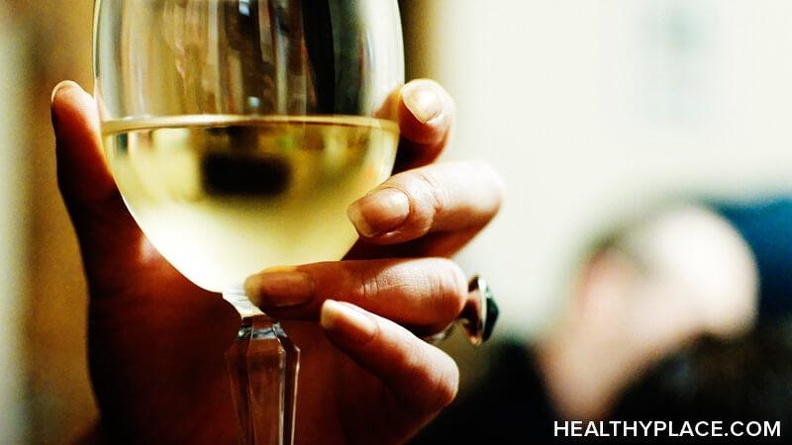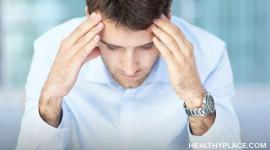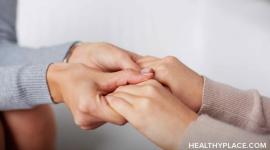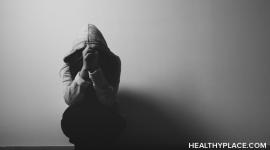How Drinking Alcohol Affects Bipolar Depression Medications

Drinking alcohol can affect bipolar depression medications—and bipolar depression itself—in dire ways. Despite the dangers, many people living with bipolar disorder drink alcohol. The Alcohol Rehab Guide (2018) reports that at some point in their lifetime, most people with bipolar disorder will have an alcohol use disorder; further, at any given time, about 43 percent of people with bipolar disorder have an alcohol use disorder. There are reasons for the strong link between bipolar depression and alcohol use despite the dangers. Let’s explore the connection because the more you know, the safer your choices can be.
Bipolar Depression and Alcohol: A Vicious Cycle
Bipolar depression can be difficult to live with. Dealing with the symptoms of despair, fatigue, lack of motivation, changes in sleeping and eating, and a general disruption of life, habits, and relationships can be almost too much to bear. It can seem like medication for bipolar depression isn’t working fast enough or well enough. When that happens, people sometimes turn to alcohol in an attempt to make things better, easier. This is sometimes referred to as self-medication.
Unfortunately, sometimes drinking helps. It’s only temporary, so people drink more to try to regain the relief. As is the case with drinking, crashes occur when the effects of alcohol wear off. This crash mimics the symptoms of depression, so to fix that, people frequently begin to drink more alcohol. It becomes a vicious cycle of wrestling with bipolar depression and drinking alcohol in which each worsens the symptoms of the other.
Alcohol deepens depression and affects judgment; many times, people stop taking prescribed medications for bipolar depression. This makes everything worse and increases mood swings, deepens depression, and increases suicidal ideation. Bipolar depression treatment becomes extremely difficult. Medication becomes more crucial than ever. The problem, though, is that drinking alcohol negatively affects bipolar depression medication.
Why and How Drinking Alcohol Affects Bipolar Depression Medication
Bipolar depression medications and alcohol both work in the central nervous system (CNS), including the brain and its chemistry. This means that alcohol can and does worsen the side-effects of bipolar medications. Alcohol is also a CNS depressant, so the experience of depression is also worsened.
Alcohol interacts with bipolar depression medication, decreasing or halting its effectiveness and creating side-effects that range from mild and annoying to potentially deadly.
Dangerous or deadly effects of combining alcohol and bipolar depression medication include:
- Deep drowsiness that can be perilous in certain circumstances
- Poor judgment
- Depressed breathing
- Convulsions
- Irregular heart rhythm
- Increased effects of alcohol
- Increased risk of medication toxicity and overdose
- Intensified bipolar depression symptoms
Another alarming effect of drinking alcohol while taking bipolar depression medications is the increased risk of suicide. Citing research conducted at the Medical University of South Carolina, Purse (2019) asserts that suicide attempts occur twice as often in people with bipolar depression who also have an alcohol use disorder than in people who have bipolar disorder and don’t drink alcohol.
If you are experiencing suicidal thoughts, go to the hospital right away or contact the National Suicide Prevention Lifeline at 1-800-273-8255.
Drinking alcohol affects bipolar depression medications in milder, but still serious, ways as well. Other effects of combining alcohol with these medications include:
- Dizziness
- Restlessness
- Confusion
- Memory problems
- Decreased motor control
- Increased risk of injuries and falls
- Tremors
- Stomach discomfort
- Loss of appetite
- Muscle and joint pain
Alcohol interacts with bipolar depression medications with critical consequences. In addition to wreaking havoc on medication, alcohol also negatively impacts bipolar depression itself.
How Alcohol Affects Bipolar Depression
Even small amounts of alcohol can create big problems for someone living with bipolar depression. Alcohol destabilizes mood in people with bipolar. Therefore, someone already experiencing a depressive episode can find themselves spiraling downward with symptoms deepening as they descend.
As a CNS depressant, alcohol further increases feelings of lethargy and apathy. It also decreases inhibition which can increase the likelihood that someone will act on suicidal thoughts.
Alcohol also makes bipolar depression harder to treat and in general worsens the course of the illness. This helps explain why drinking alcohol increases the need for hospitalization. It takes more intense treatment to make depression manageable.
The takeaway is two-fold. Alcohol has frightening effects on bipolar depression and bipolar depression medication. However, this is something within your control. When you choose not to use alcohol, you improve your experience with bipolar depression, and you help your medications work.
If you do drink and need help stopping, talk with your doctor or therapist, or call a hotline such as the SAMHSA National Helpline at 1-800-662-HELP (4357).
Bipolar depression is tough, and self-medicating with alcohol is common. Alcohol makes things worse, which means that you will make things better without alcohol.
APA Reference
Peterson, T.
(2021, December 28). How Drinking Alcohol Affects Bipolar Depression Medications, HealthyPlace. Retrieved
on 2026, March 4 from https://www.healthyplace.com/bipolar-disorder/bipolar-depression/how-drinking-alcohol-affects-bipolar-depression-medications



